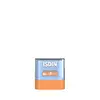What's inside
What's inside
 Key Ingredients
Key Ingredients

 Benefits
Benefits

No benefits
 Concerns
Concerns

 Ingredients Side-by-side
Ingredients Side-by-side

Petrolatum
EmollientPPG-3 Benzyl Ether Myristate
EmollientOzokerite
Emulsion StabilisingCetearyl Alcohol
EmollientDiethylamino Hydroxybenzoyl Hexyl Benzoate
UV FilterBis-Ethylhexyloxyphenol Methoxyphenyl Triazine
Skin ConditioningCanola Oil
EmollientEthylhexyl Salicylate
UV AbsorberTitanium Dioxide
Cosmetic ColorantEthylhexyl Triazone
UV AbsorberCopernicia Cerifera Cera
EmollientTocopheryl Acetate
AntioxidantSilica
AbrasiveButyl Methoxydibenzoylmethane
UV AbsorberPetrolatum, PPG-3 Benzyl Ether Myristate, Ozokerite, Cetearyl Alcohol, Diethylamino Hydroxybenzoyl Hexyl Benzoate, Bis-Ethylhexyloxyphenol Methoxyphenyl Triazine, Canola Oil, Ethylhexyl Salicylate, Titanium Dioxide, Ethylhexyl Triazone, Copernicia Cerifera Cera, Tocopheryl Acetate, Silica, Butyl Methoxydibenzoylmethane
Dicaprylyl Carbonate
EmollientDibutyl Adipate
EmollientHydrogenated Castor Oil
EmollientOryza Sativa Cera
Skin ConditioningCandelilla Cera
EmollientCocoglycerides
EmollientBis-Ethylhexyloxyphenol Methoxyphenyl Triazine
Skin ConditioningButyl Methoxydibenzoylmethane
UV AbsorberEthylhexyl Triazone
UV AbsorberDiethylamino Hydroxybenzoyl Hexyl Benzoate
UV FilterSilica
AbrasiveButyrospermum Parkii Butter
Skin ConditioningBrassica Campestris Sterols
EmollientCetearyl Alcohol
EmollientPanthenol
Skin ConditioningTocopheryl Acetate
AntioxidantHelianthus Annuus Seed Extract
Skin ConditioningTocopherol
AntioxidantPhaeodactylum Tricornutum Extract
HumectantCitric Acid
BufferingDicaprylyl Carbonate, Dibutyl Adipate, Hydrogenated Castor Oil, Oryza Sativa Cera, Candelilla Cera, Cocoglycerides, Bis-Ethylhexyloxyphenol Methoxyphenyl Triazine, Butyl Methoxydibenzoylmethane, Ethylhexyl Triazone, Diethylamino Hydroxybenzoyl Hexyl Benzoate, Silica, Butyrospermum Parkii Butter, Brassica Campestris Sterols, Cetearyl Alcohol, Panthenol, Tocopheryl Acetate, Helianthus Annuus Seed Extract, Tocopherol, Phaeodactylum Tricornutum Extract, Citric Acid
Ingredients Explained
These ingredients are found in both products.
Ingredients higher up in an ingredient list are typically present in a larger amount.
You might know this ingredient as Tinosorb S or Bemotrizinol. It is a UV filter that covers both UVA and UVB rays.
This ingredient has two peak UV absorption peaks ( 310 and 340 nm) and is able to absorb both UV-A and UV-B rays. This ingredient works by preventing UV rays from reaching and damaging your skin.
On top of that - it is highly photostable and helps prevent the photodegration of other sunscreen ingredients such as avobenzone.
Tinosorb S is allowed in the EU, Australia, and Asia. It is close to being approved by the FDA and we'll hopefully get this ingredient in the U.S. by late 2025.
Fun fact: Tinosorb S is the most effective UV absorber at maximum concentration (measured by SPF) permitted in the EU.
This ingredient is oil-soluble, so your oil-cleansers will take this right off at night.
Learn more about Bis-Ethylhexyloxyphenol Methoxyphenyl TriazineAlso known as Avobenzone, this ingredient is a chemical sunscreen filter that provides protection in the UV-A range.
Avobenzone is globally approved and is the most commonly used UV-A filter in the world.
Studies have found that avobenzone becomes ineffective when exposed to UV light (it is not photostable; meaning that it breaks down in sunlight). Because of this, formulations that include avobenzone will usually contain stabilizers such as octocrylene.
However, some modern formulations (looking at you, EU!) are able to stabilize avobenzone by coating the molecules.
Avobenzone does not protect against the UV-B range, so it's important to check that the sunscreen you're using contains other UV filters that do!
The highest concentration of avobenzone permitted is 3% in the US, and 5% in the EU.
Learn more about Butyl MethoxydibenzoylmethaneCetearyl alcohol is a mixture of two fatty alcohols: cetyl alcohol and stearyl alcohol. It is mainly used as an emulsifier. Emulsifiers help prevent the separation of oils and products. Due to its composition, it can also be used to thicken a product or help create foam.
Cetearyl alcohol is an emollient. Emollients help soothe and hydrate the skin by trapping moisture.
Studies show Cetearyl alcohol is non-toxic and non-irritating. The FDA allows products labeled "alcohol-free" to have fatty alcohols.
This ingredient is usually derived from plant oils such as palm, vegetable, or coconut oils. There is debate on whether this ingredient will cause acne.
Due to the fatty acid base, this ingredient may not be Malassezia folliculitis safe.
Learn more about Cetearyl AlcoholDiethylamino Hydroxybenzoyl Hexyl Benzoate (DHHB) is a chemical UV-A absorber. It is formulated for high UVA protection (320-400 nm).
DHHB is well-liked for:
DHHB has been approved by the EU, Japan, Taiwan, and South America for use up to 10%. Unfortunately, it has not been approved for use in the US or Canada due to slow regulatory processes.
This ingredient is soluble in oils, fats, and lipids.
Learn more about Diethylamino Hydroxybenzoyl Hexyl BenzoateEthylhexyl Triazone is a modern chemical sunscreen that protects from UV-B radiation.
It is the most effective of existing UV-B filters, as it provides the highest level of photo-stable absorption. It protects from the entire UV-B range (280 to 320nm), with it's highest level of protection at 314nm.
Ethylhexyl Triazone is oil soluble, oderless and colorless, which mean it is able to be incorporated into a variety of different formulations.
It is not currently available within the United States due to slow changing FDA regulations. Outside of the US, it is used in formulations at concentrations up to 5%.
Learn more about Ethylhexyl TriazoneSilica, also known as silicon dioxide, is a naturally occurring mineral. It is used as a fine, spherical, and porous powder in cosmetics.
Though it has exfoliant properties, the function of silica varies depending on the product.
The unique structure of silica enhances the spreadability and adds smoothness, making it a great texture enhancer.
It is also used as an active carrier, emulsifier, and mattifier due to its ability to absorb excess oil.
In some products, tiny microneedles called spicules are made from silica or hydrolyzed sponge. When you rub them in, they lightly polish away dead skin layers and enhance the penetration of active ingredients.
Learn more about SilicaTocopheryl Acetate is AKA Vitamin E. It is an antioxidant and protects your skin from free radicals. Free radicals damage the skin by breaking down collagen.
One study found using Tocopheryl Acetate with Vitamin C decreased the number of sunburned cells.
Tocopheryl Acetate is commonly found in both skincare and dietary supplements.
Learn more about Tocopheryl Acetate